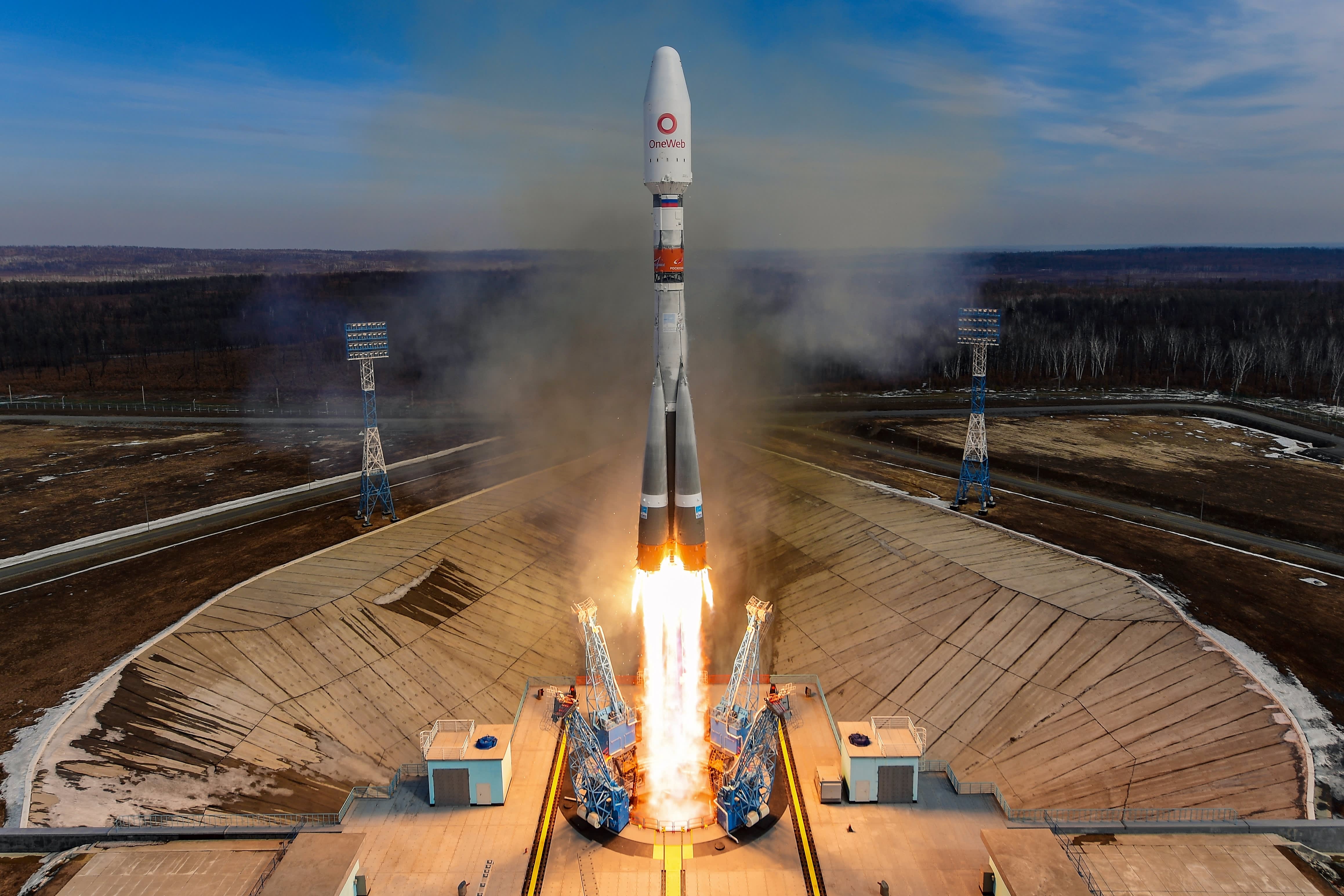Russia’s space agency is refusing to launch OneWeb internet satellites due to UK sanctions

A Soyuz 2 rocket launches 36 OneWeb satellites on March 25, 2020 from Vostochny Cosmodrome, Russia.
Roscosmos
The corporate internet space race has taken a geopolitical turn.
Russian space agency Roscosmos is refusing to launch the next batch of 36 OneWeb internet satellites Friday, unless the company meets the state agency’s demands. Roscosmos head Dmitry Rogozin particularly emphasized that the ultimatum is a response to the U.K. sanctioning Russia over its invasion of Ukraine.
Roscosmos said in a statement that the Soyuz rocket will be removed from the launchpad at Baikonur Cosmodrome in Kazakhstan unless OneWeb meets two demands:
- The U.K. government sells its stake in the company.
- OneWeb guarantees that the satellites not be used for military purposes.
OneWeb and Arianespace, the European rocket builder which operates the Soyuz rockets that are supplied by Roscosmos, did not immediately respond to CNBC’s requests for comment.
A stack of 36 OneWeb satellites being prepared ahead of its launch on March 25, 2020.
Arianespace
The company has launched 428 satellites to low Earth orbit on Soyuz rockets. OneWeb plans to operate a constellation of 650 satellites to provide global internet coverage from space.
OneWeb was rescued from bankruptcy in 2020, with the U.K. government and Indian telecommunications conglomerate Bharti Global taking equity stakes to finance the company’s network.
Space companies have been racing to build next-generation satellite internet networks, largely in low Earth orbit using hundreds or thousands of satellites. OneWeb and SpaceX’s Starlink represent the most mature versions of these concepts. Each has begun to provide service to customers.
But the companies’ approaches are largely distinct.
OneWeb’s business, for instance, depends on multinational cooperation. OneWeb has a diversity of stakeholders across the world, with investors including the U.K. government, Bharti Global, Japanese investment giant SoftBank, European communications firm Eutelsat, and South Korean conglomerate Hanwha systems.
The company’s path to building its network is also global: OneWeb’s satellites are manufactured in Florida through a joint venture with European aerospace giant Airbus. Its launches are conducted through Arianespace on Russian-built rockets. Countries require regulatory approval for the company to provide service.
By contrast, SpaceX is a private, heavily-verticalized U.S. venture. Elon Musk’s company builds and launches Starlink internet satellites itself. SpaceX provides Starlink service in more than two dozen countries.
The company recently activated service in Ukraine in response to requests from the government. SpaceX also sent Starlink terminals to Ukraine, with the antennas helping connect the country to the internet amid the Russian invasion.




